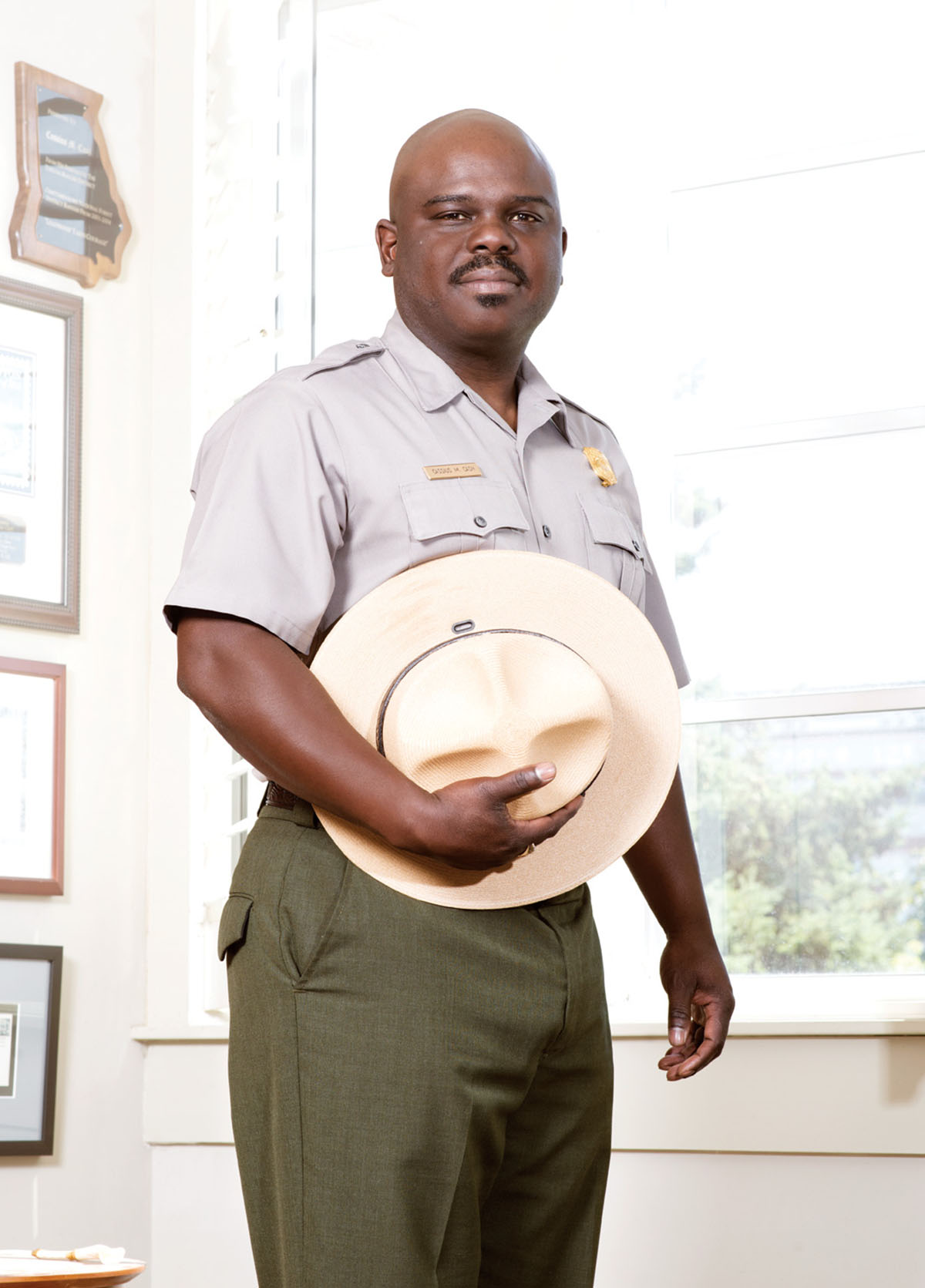Power of Ideas: Cassius Cash

Photograph by Toan Trinh
The Backstory
Born and raised in Memphis, Tennessee, Cassius Cash admits that he didn’t exactly grow up communing with nature—the closest he came to the wilderness was watching Wild Kingdom. He attended college thinking he’d become a doctor, but when recruiters from the U.S. Forest Service offered him an internship, he jumped at the chance to work with wildlife biologists. “I was always fascinated with animals,” he says. “I just didn’t see anyone who looked like me doing those jobs. It was like stumbling onto a dream.” In his next two decades with the Forest Service, Cash helped protect spotted owls and preserve public lands, and worked as a civil rights officer in Mississippi, where he led programs introducing inner-city youth to the forest. In 2010 he moved north to preside over a very different public space: downtown Boston’s national parks.
The Idea
Cash was tasked with overseeing the Boston National Historical Park, which links the stops along the Freedom Trail, and the Boston African American National Historic Site, a collection of 15 Beacon Hill businesses, churches, and homes along the Black Heritage Trail that were inhabited by Boston’s free African-American community in the 19th century. Cash realized that the two parks shared a common theme: “When you look at the outcomes to each of the stories, the abolitionist movement or the Revolution, they both end in freedom,” he says. So in 2012, when the new national-park visitor center opened in Faneuil Hall, Cash began marketing the two paths as “Boston’s trails to freedom.” The center’s programming now incorporates concepts from both trails.
The Outcome
The two parks’ attendance figures have more than doubled since 2009, with rangers leading more than a dozen tours a day. Cash says he encourages them to engage visitors in thinking critically about the city’s history. “Why is Boston known for the busing issue rather than having the first integrated schools in the country?” he says. “If we don’t have stories that are deeper and more inclusive, then you’re going to lose a generation.” Cash is now proposing legislation to rename the two sites “Freedom National Historical Park,” to highlight the city’s role in American history.
The Stakes
- In 2013, 6,121,223 people visited the Boston heritage sites that Cash oversees.
- Those visitors spent $145 million in surrounding communities, supporting 1,942 jobs in the area.
- The Boston African American National Historic Site hosted more than 5,500 programs for nearly a million people in 2013.


